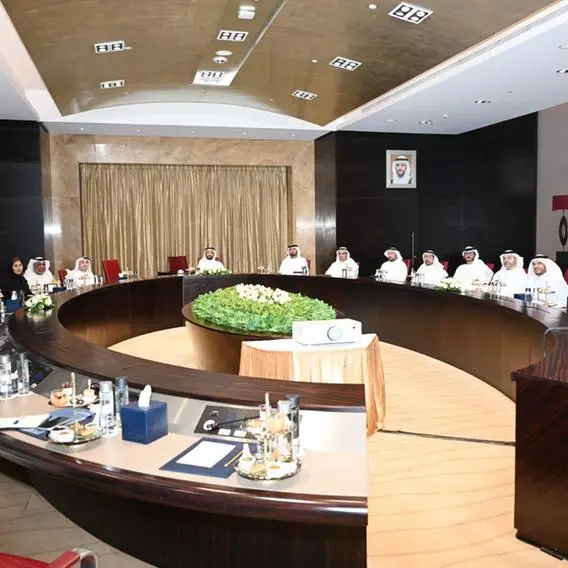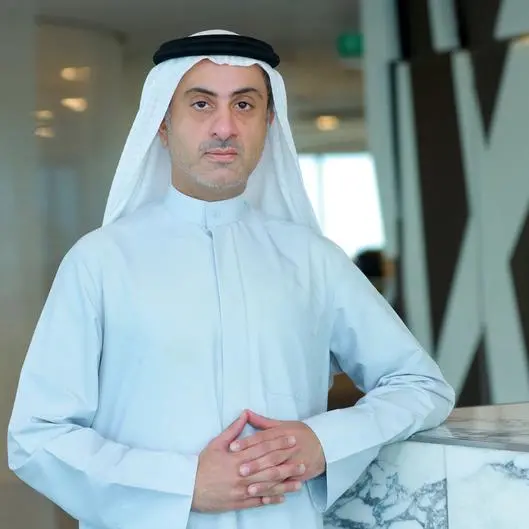PHOTO
Dubai, UAE – The Ministry of Finance, in collaboration with the International Centre for Settlement of Investment Disputes (ICSID), organized a roundtable titled ‘Arbitration in Investment Disputes’. The discussion revolved around issues faced by states, government officials, and investors with regards to their domestic and international investment relations, and the resulting disputes.
Participants in the roundtable discussion included Thuraiya Hamid Alhashmi, Director of International Financial Relations and Organizations Department at the UAE Ministry of Finance, Dr. Hussam Al Talhuni, the Legal Advisor to His Excellency the Minister of Finance in the UAE, Natalí Sequeira, Senior Legal Counsel and Team Leader at ICSID, Dr. Tarek Riad, Managing Partner of Tarek Riad and Partners Legal Consultants and Attorneys at Law, His Excellency Justice Shamlan Al Sawalehi, Court of Appeal Judge and Judge in Charge of the Arbitration Division at the DIFC Courts, and Karim Nassif, Principal at Nassif Arbitration, alongside a group of experts from the public and private sectors.
The experts discussed disputes that arise between countries receiving investments and investors of foreign citizenship, whether they are natural persons or legal persons. They also explored the complexities faced by state and public government officials and/or investors when engaging in investment-related agreements with dispute resolution clauses, and the considerations that should be taken into account – including the identification of the dispute resolution mechanism, whether mediation, conciliation, or arbitration, the determination of the jurisdiction.
Participants also discussed the identification of specialized arbitration centers or by adhering to local legal frameworks and subject to oversight by the domestic judiciary, and the mechanisms for enforcing arbitration awards resulting from these proceedings. They also shed light on other pertinent details that are significant for governemnts, investors, and experts engaged in the agreement.
The UAE joined ICSID in 1993 following the issuance of Federal Decree Law No. 43 of 1993, given the centre’s status as a a leading international institution for settling disputes related to international investment issues.
About the Ministry of Finance
The Ministry of Finance of the United Arab Emirates was established as a sovereign ministry under Federal Decree No. (2) of 1971 to assume responsibility for implementing all financial policies related to economic development in the country, foremost of which is preparing and allocating the federal budget, managing the government’s financial situation, and providing services to the government and business sectors, as well as individuals. His Highness Sheikh Maktoum bin Mohammed bin Rashid Al Maktoum, Deputy Ruler of Dubai, Deputy Prime Minister, serves as Minister of Finance, heading the UAE’s economic and financial interests. His Excellency Mohamed bin Hadi Al Hussaini, Minister of State for Financial Affairs, aims to achieve the Ministry’s strategic objectives.
The Ministry of Finance operates in accordance with a realistic yet ambitious strategic plan to perform its tasks and services in line with international best practices. The Ministry strives to achieve six key strategic goals, namely, enhancing financial planning in the Federal Government and the sustainability of public finances; raising the efficiency and effectiveness of budget execution, while managing the Federal Government’s financial position and cash flows; overseeing the UAE’s financial and economic interests at the international level; boosting the country’s competitiveness in financial and economic fields; providing all administrative services in accordance with the highest standards of quality, efficiency, and transparency; and finally, promoting a culture of innovation in the corporate work environment.
The Ministry includes five main sectors: the government budget and revenue sector, tax legislation sector, government financial management sector, international financial relations sector, and support services sector. It also includes the Federal Debt Management Office, General Budget Committee, Government Financial Policy Coordination Council, and the Financial Restructuring Committee.
For more information, please contact:
Tasnim Hijazi
APCO Worldwide
E: thijazi@apcoworldwide.com




















